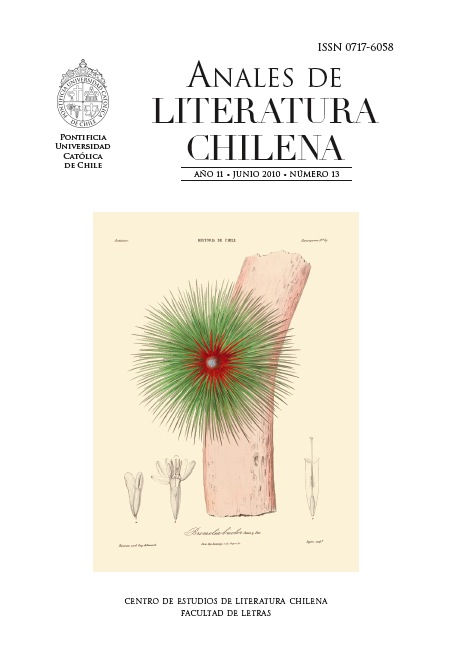MARTÍN RIVAS, MAQUIAVELO Y MASCULINIDAD DECIMONÓNICA CHILENA
Keywords:
Alberto Blest Gana, Martín Rivas, Niccolò Machiavelli, The Prince, Mandragola, Clizia, fortuna, virtù, occasione, masculinity, transatlantic studiesAbstract
In this article, I explore masculinity and national identity in 19th-century Chile as they are expressed in Alberto Blest Gana’s Martín Rivas (1862). This essay is a transatlantic study that examines Gana’s text using the socio-political tools of Niccolò Machiavelli, drawing on not only The Prince but also his famous works of fi ction, such as the Mandragola and Clizia, which also develop the Florentine author’s political ideas. In Martín Rivas the historical events signal a society in transition, conservatives against the liberals of the Sociedad de la Igualdad. Human relations among male characters denote loyalty, strength of character and sacrifi ce; on the other hand, there are also glimpses of dissimulation, transaction between social classes and obsession with material goods and desire for ostentation. “Outside” politics intertwine with “house” or “domestic” politics. Within Machiavellian political thought, I underscore the concepts of “fortuna”, “virtù” and “occasione” to construct the fi gure of Martín, alter-ego of Blest Gana, the masculine fi gure that, with exemplary behavior, conquers the heart of the most beautiful Leonor, winning over capitalists who believe that money is god.
Downloads
Downloads
Published
How to Cite
Issue
Section
License

This work is licensed under a Creative Commons Attribution-NoDerivatives 4.0 International License.


